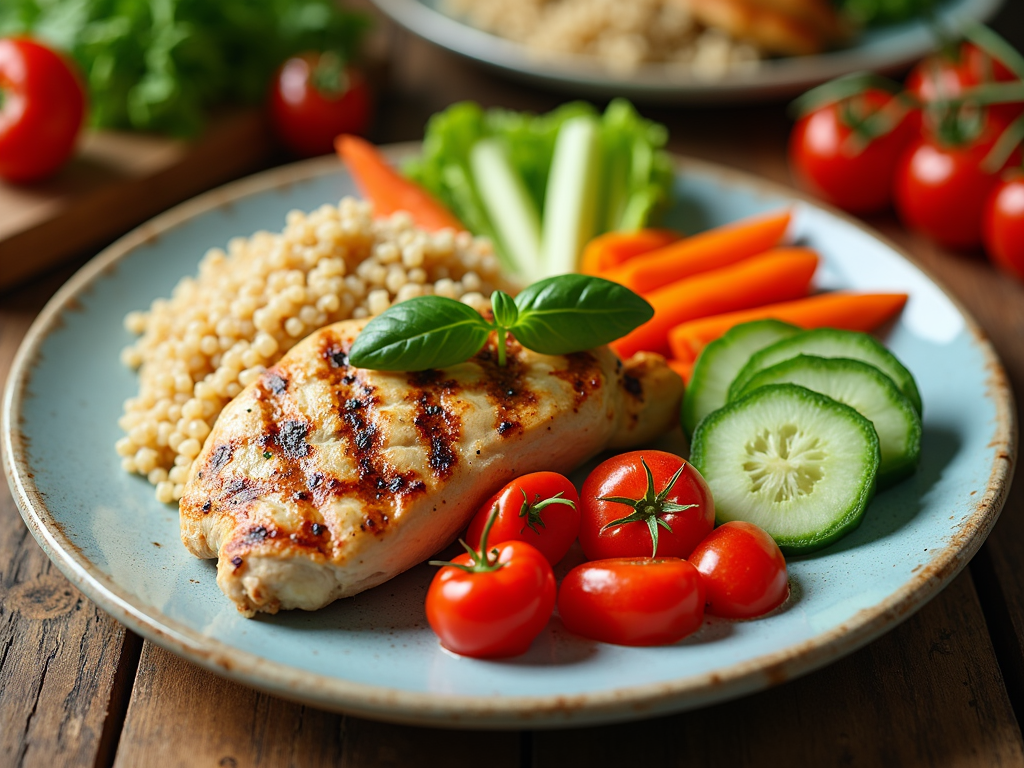How Diet Impacts Unexplained Infertility: A Deep Dive
March 27, 2025, 11:38 a.m.
Overview
Unexplained infertility can feel like a mystery with no answers. For couples trying to conceive, it’s tough when tests show nothing wrong, yet pregnancy doesn’t happen. Could diet be a hidden factor? This article dives deep into How Diet Impacts Unexplained Infertility: A Deep Dive, exploring nutrition’s role and simple changes you can make.
When doctors can’t pinpoint a cause, it’s called unexplained infertility. It affects about 10-30% of couples struggling to conceive. While medical treatments are an option, lifestyle factors like diet often get overlooked. Let’s break down how what you eat might influence your fertility—and what you can do about it.

Why Diet Matters for Fertility
Your body needs the right fuel to work well, especially for something as complex as reproduction. For women, diet can affect hormones, ovulation, and even egg quality. Poor eating habits might quietly contribute to female infertility, even when tests don’t show a problem.
Think of food as more than just calories—it’s information for your body. The nutrients you take in help balance hormones and keep your reproductive system running smoothly. When those nutrients are missing, things can go off track. That’s where The Role of Nutrition in Female Infertility comes into play.

The Role of Nutrition in Female Infertility
Let’s get specific. Here’s how diet ties into key parts of fertility:
- Hormones: Your body needs fats and vitamins to make hormones like estrogen. Omega-3s from fish, vitamin D from sunlight or supplements, and zinc from nuts keep things balanced.
- Ovulation: Eating too much sugar can mess with insulin, which might stop ovulation. Fiber from veggies and whole grains helps keep it steady.
- Egg Quality: Eggs can get damaged by stress in your body. Antioxidants—like vitamin C from oranges or E from almonds—protect them.
- Uterine Health: A strong lining for the baby to implant needs iron from spinach and folate from lentils.
These aren’t just theories. Studies show women who eat better often have better fertility outcomes. But with unexplained infertility, it’s about giving your body every advantage possible.

My Journey with Unexplained Infertility
I’ve been there. After months of negative tests and no clear answers, I felt lost. Unexplained infertility hit me hard emotionally—why wasn’t my body cooperating? Then I started looking at my diet. I was eating too much junk—processed snacks, sugary drinks—and not enough real food.
So, I made a change. I swapped chips for carrots, soda for water with lemon. I added salmon and walnuts for healthy fats. It wasn’t instant, but I felt more in control. My energy improved, and I stopped crashing from sugar highs. It gave me hope when I needed it most.

Unexplained Infertility and Lifestyle Changes
Diet isn’t a magic fix, but it’s a start. Here are some changes that can help:
- Go Mediterranean: Load up on fruits, veggies, whole grains, and olive oil. It’s linked to better fertility.
- Boost Antioxidants: Eat berries, nuts, and greens to shield your reproductive cells.
- Cut the Sugar: Skip candy and white bread. Choose oats or brown rice instead.
- Add Protein: Fish, chicken, or beans support your body’s needs.
- Drink Water: Stay hydrated—it’s simple but essential.
These steps aren’t hard, but they add up. I started small—just one change a week—and built from there. Over time, my meals looked totally different, and I felt better inside and out.

Practical Tips to Try Today
Ready to take action? Here’s a quick guide:
| What to Do | Why It Helps | Easy Example |
|---|---|---|
| Eat colorful veggies | Loads of vitamins and antioxidants | Add bell peppers to lunch |
| Pick healthy fats | Supports hormone production | Drizzle olive oil on salad |
| Limit caffeine | Reduces stress on your system | Switch to herbal tea |
| Try supplements | Fills nutrient gaps | Ask your doc about folate |
Start with what feels doable. Maybe swap coffee for tea or toss some spinach into dinner.
Mindful eating helped me too. I slowed down, savored my food, and listened to my body. It’s not just about what you eat, but how. Small habits can make a big difference.

What I Learned Along the Way
Changing my diet didn’t solve everything overnight. Unexplained infertility is tricky—there’s no one-size-fits-all answer. But eating better gave me a sense of power. I wasn’t just waiting for a doctor’s fix; I was doing something for myself.
One big win? Cutting sugar. My moods stopped swinging, and my weight steadied—both good for fertility. I also leaned on my partner. We cooked together, turning meals into a team effort. It made the journey less lonely.

Summary
Unexplained infertility can leave you feeling stuck, but diet offers a way to take charge. Nutrition shapes female infertility by supporting hormones, ovulation, and more. Simple shifts—like eating Mediterranean-style or cutting sugar—can improve your health and maybe your odds of conceiving. It’s not a cure, but it’s a step forward. Talk to your doctor, start small, and see where it takes you.